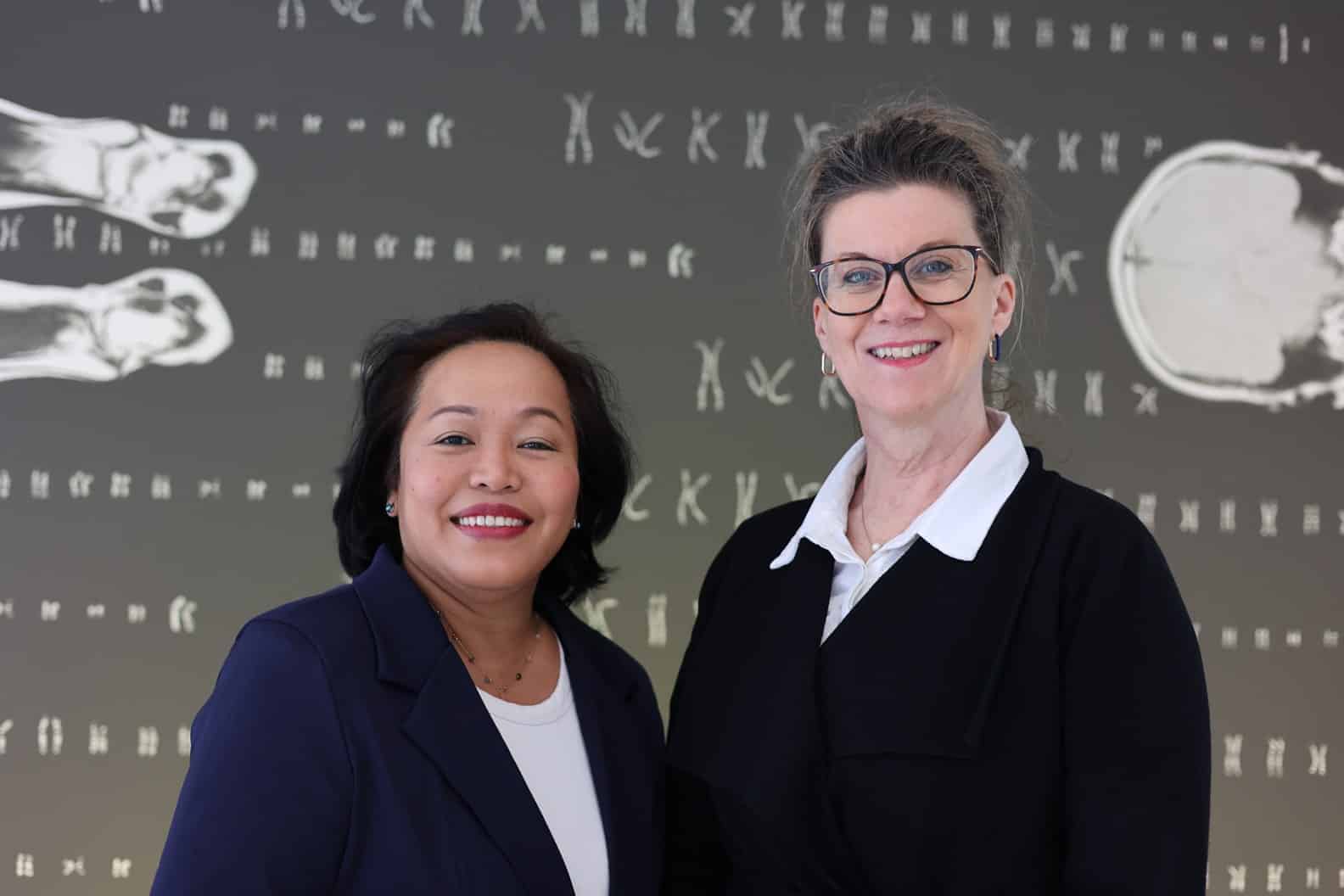
The Harry Perkins Institute of Medical Research is celebrating a major milestone in the progression of a world-first drug candidate that has the potential to change the lives of thousands of Australians with atherosclerosis, a disease which can cause the build-up of cholesterol and other lipids (fats) in the walls of arteries, causing narrowing and blockage where stroke, heart attack, amputation, kidney failure and loss of bowel can result.
Atherid Therapeutics Pty Ltd, a new company founded by Perkins researchers, Associate Professor Juliana Hamzah and Professor Shirley Jansen, has received $750,000 in Medical Research Future Fund (MRFF) funding through the Targeted Translation Research Accelerator (TTRA) Drugs and Devices program delivered by MTPConnect.
The funding will be used to produce the drug candidate, known as ATH01, to Good Manufacturing Practice (GMP) standard and which is required for human clinical trials.
ATH01 is a biologic therapeutic drug for treating patients with atherosclerotic cardiovascular disease.
MTPConnect, the organisation that administers these grants, has confirmed a further Tranche B grant of $750,000 will be available upon successful completion of the first stage.
A/Prof Hamzah, Group Leader of the Targeted Drug Delivery, Imaging & Therapy laboratory at the Perkins, invented ATH01 after discovering a protein that attaches to cells in the arteries that store cholesterol and lipids, helping these cells clear the accumulated lipids.
A/Prof Hamzah worked with Prof Jansen, who heads the Vascular and Endovascular Surgery department at Sir Charles Gairdner Hospital and is Joint Head of the Cardiovascular Science & Diabetes Program at the Perkins.
Prof Jansen works closely with patients living with Peripheral Arterial Disease (PAD). This disease blocks blood flow to organs and limbs, leading to heart attacks, strokes, amputations, and significant emotional, financial, and healthcare burdens.
Current medications control risk factors or reduce blood cholesterol but do not remove the plaques.
Similarly, procedures with balloons, stents or surgery, push the narrowing aside or bypass them and the plaques are not removed.
Cardiovascular disease is the biggest killer in the developed world causing 18 million deaths a year with more than 42K in Australia.
In Australia, each year there are more than 57,000 people having heart attacks; more than 38,000 strokes and 8000 amputations.
The cost to healthcare annually in Australia is $14.3. billion.
Atherid Therapeutics aims to trial ATH01 first on patients genetically predisposed to atherosclerotic disease, a condition known as familial hypercholesterolemia (FH), or inherited high cholesterol, who cannot prevent early and significant plaque accumulation and are at an even higher risk of cardiovascular complications.
“By initially focussing on this group of patients, we may be able to bring the drug to the bedside quicker,” said commercial lead Dr James Williams who has been working with the team for more than 2 years.
“ATH01 targets the root cause by breaking down a build-up of cholesterol and other lipids, offering a transformative solution,” said A/Prof Juliana Hamzah.
“ATH01 developed at the Perkins combines two powerful molecules.
“One is based on a natural agent already found in the body, and the other is a ‘homing’ molecule that zeroes in on cholesterol and fats in the artery walls.”
Current treatments for atherosclerosis are helpful but do not offer a cure.
“This precise targeting ensures the drug reaches exactly where it is needed, which is what we designed it to do,” said Prof Jansen.
“It works consistently throughout the entire arterial system, and we understand how it helps the body’s cells break down the cholesterol and fatty deposits.
“If it continues to show success, it could transform the lives of millions.”
Despite its potential to be a groundbreaking treatment, it has taken Juliana and Shirley 10 years to reach the stage where they are ready to move towards human trials.
“Our research started from nothing—an unknown, high-risk idea with many doubts about whether it was even possible to clear arteries with a medicine,” said Juliana.
“But after a decade, we have proven its concept, feasibility and consistent results.
“Now, we have reached the point where the drug must be manufactured to the highest standards, suitable for patient use, so we can move forward to clinical trials.
“This is an exciting milestone for a new therapy that could dramatically change lives, and it’s time to push ahead.”
The total estimated costs for the next stages of GMP production and for initial human clinical trials is up to $20 million.
Professor Peter Leedman AO, Director and CEO of the Perkins is looking forward to the next stages.
“These are exciting times to see the development of this benchmark innovation being delivered to the bedside,” he said.
“We look forward to witnessing these remarkable advances in clinical research to find better ways to treat and eventually cure atherosclerosis,”
A/Prof Hamzah and Prof Jansen have established a new company, Atherid Therapeutics Pty Ltd, in collaboration with the Perkins and Dr. James Williams, CEO of the Health Translation Group Limited, to produce the drug ATH01.
The clinical development of ATH01 will incorporate consumer input through partnerships with Limbs 4 Life, the national peak body representing amputees, including those with PAD, and FH Australia, which supports individuals and families affected by inherited high cholesterol.
For more information, go to www.atherid.com
